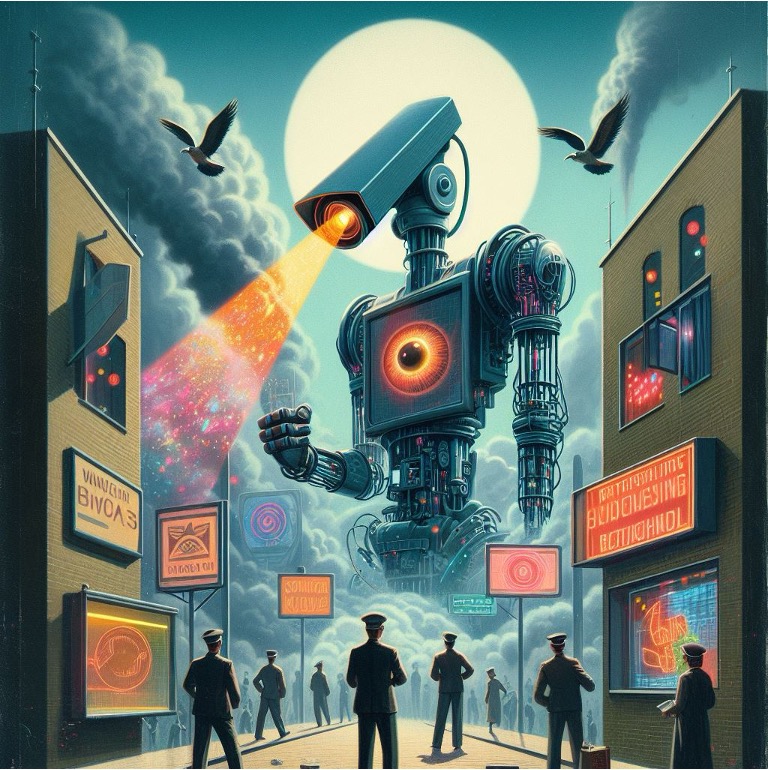
“1984” is a dystopian novel by George Orwell set in the totalitarian state of Oceania, where the ruling Party, led by the mysterious Big Brother, exercises complete control over its citizens. The novel explores themes of surveillance, propaganda, censorship, and the manipulation of truth, portraying a bleak vision of a future society where individuality is suppressed, and reality is distorted by those in power.
Dystopian settings are typically depicted in literature and film to explore and critique societal and political issues. These fictional worlds serve as cautionary tales, highlighting the potential consequences of certain political, social, or technological developments.
“1984” and the advent of AI share some thematic similarities, particularly in terms of surveillance, control, and the potential for abuse of power. Here are some parallels between the two:
Surveillance and Privacy:
In “1984,” the government uses advanced surveillance technology to monitor citizens’ every move. Similarly, AI and advanced technology in the real world raise concerns about the potential invasion of privacy through surveillance cameras, facial recognition, and other monitoring systems.
Centralized Control:
AI systems, especially when concentrated in the hands of a few powerful entities, could potentially lead to centralized control over information and decision-making, raising concerns about manipulation and censorship.
Manipulation of Information:
“1984” highlights the manipulation of historical records and the control of information to shape public perception. In the age of AI, there are concerns about the spread of misinformation, deepfakes, and algorithmic biases that can manipulate public opinion and distort reality.
Loss of Individuality:
In “1984,” Big Brother seeks to eliminate individuality and independent thought. With the rise of AI, there are concerns about the impact on jobs, autonomy and individual decision-making.
Language and Thought Control:
“Newspeak” in “1984” is a language designed to eliminate unorthodox thoughts. In the realm of AI, there are discussions about the potential impact of algorithms and language models on shaping public discourse, potentially influencing thought patterns and limiting diverse perspectives.
Ethical Dilemmas:
Both “1984” and AI raise ethical questions about the use of technology for control and power. Issues such as the responsible development of AI, transparency, accountability, and the potential for unintended consequences are central concerns in both contexts.
Conclusion
It’s important to note that while these similarities exist, the comparison is not perfect. “1984” is a work of fiction that reflects the fears and concerns of Orwell’s time, whereas discussions about AI involve real-world technologies with their own unique challenges and opportunities.
Nonetheless, exploring these parallels can foster discussions about the responsible development and use of AI in society and the workplace. Ethical guidelines and standards should be established to govern the deployment of AI technologies, fostering a culture of responsible innovation. Additionally, promoting education and awareness about AI ethics is crucial to empower individuals and organizations to make informed decisions.


